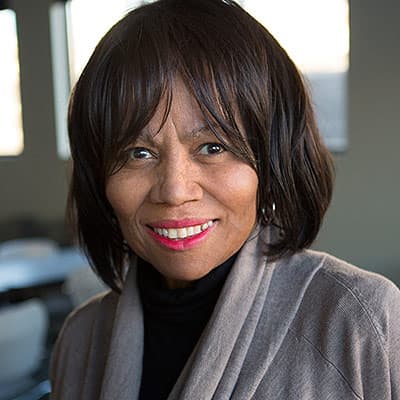Advertisement
Crowded 1983 Contest A Preamble To Today's Boston Mayoral Race
ResumeA dozen candidates have so far successfully qualified for the ballot in the race to become the next mayor of Boston. Mayor Thomas Menino touched off the scramble when he announced in March that he would retire at the end of this year.
The last time there was a wide-open race like this was three decades ago, in 1983, when nine candidates vied to replace Mayor Kevin White after his 16 years in office.
1983: 'A Very Complicated Campaign'
If you think money makes a difference in political campaigns, don't look back to the '83 contest. It didn't pay off for prominent attorney and talk radio host Dave Finnegan, who headed the politically active Boston School Committee.
“Dave Finnegan had more money than any of us, and he had been running, almost consistently, for four years,” said attorney Larry DiCara, who's writing a book on Boston politics and, as a city councilor, was one of the nine seeking to replace the retiring White.
And of the nine, Finnegan was considered the frontrunner. “Most of us privately thought he was the guy to catch, and he came in third, because politics is a very strange business," DiCara added.
Also in the race: other members of the Boston City Council, including Raymond Flynn; Suffolk County Sheriff Dennis Kearney; and former state legislator Mel King.
It was an election that tested loyalties, DiCara says.
"In my case, I was from Dorchester, but the Finnegans were from Dorchester and Ray Flynn had support there as well," he said. "I should have done well in East Boston but Dennis Kearney was from East Boston. And all of that made it a very complicated campaign.”
In the end, DiCara came in fourth, right behind Finnegan. Flynn and King took first and second, respectively, and moved on to a head-to-head race for the mayoralty.
“Mel King and I had very little money, we had no media support to speak of, but we did have a lot of grassroots, neighborhood activists,” said Flynn, who called the faceoff "probably the greatest election in the history of Boston."
Flynn says there were some important firsts in that 1983 election. He said:
Don't forget: An Irishman from South Boston had never been elected mayor of Boston, and a black from the South End or any part of Boston had never been elected mayor of Boston. So all the experts didn’t give us, Mel King or I, much of a chance to win this election without the downtown power, without the elites, and all these different people who usually influence elections — developers, the real estate industry, the same people in power today. They weren’t with Mel King and they weren’t with Ray Flynn.
Flynn won the election that year, and served as mayor for 10 years until 1993, when he was appointed U.S. ambassador to the Vatican. That elevated council President Thomas Menino, of Hyde Park, to the mayor’s office.
Changed Electorate, Same Issues
The city has changed since 1983. Then, non-whites represented less than a third of Boston’s population. Today they are in the majority; 53 percent of city residents are people of color.
“We have people, every ethnic or racial background, who are coming together and saying, ‘We have a right to the city'," said King. "And they’re getting organized and in this coming election they will be heard from. And whoever is running for mayor has to find a way to deal with their issues. Because if they’re not going to, they won’t get the support of the organizing approach that is taking place."
In 1983, King was the only non-white candidate among the men on the ballot. This year's race so far includes five black candidates — including one woman — and one Hispanic.
Thirty years after he ran for mayor, King says he wants to see the community come together around issues imperative for any candidate. He listed: affordable housing, access to jobs, an improved school system and a cooperative business model.
Flynn agrees with his one-time rival’s assessment. He said:
In 2013 I can’t predict the election, but I can tell you that the candidates that run on those issues that are important to people, working class people, people who are struggling, people who see gentrification, see their neighborhoods being changed right before their eyes. They’re being out-priced in the city. They can’t afford to live here. They’re concerned about public education. They’re concerned about affordable housing. They’re concerned about the parks and playgrounds. All those grassroots issues that were important in 1983, in my opinion, they’re still important today in 2013.
This year's race has yet to light a fire under the electorate. Flynn feels part of the problem is that the media coverage of the race is nowhere near as intense as it was in 1983.
King says voters today have an opportunity to hear more voices for new creative ideas amid the growing push for equity in the city. He hopes they take advantage of it.
This article was originally published on June 11, 2013.
This program aired on June 11, 2013.
